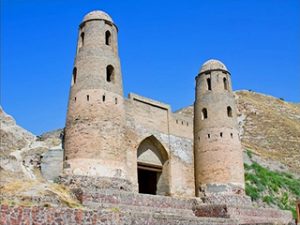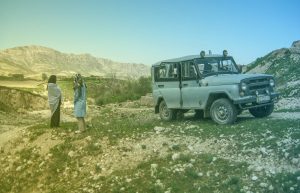
This content has been archived. It may no longer be relevant
When the Soviet Union collapsed and no longer governed Kazakhstan, the region surrounding the country’s vast wetlands experienced significant economic decline and job loss. With little paying work available, village residents resorted to illegal poaching in the wetlands. Even worse, lower water levels from excessive water withdrawal for agricultural irrigation caused a decrease in the fish and migrating bird population upsetting the ecological balance.
In order to prevent further environmental degradation, a collaborative initiative between the Kazakhstan government, United Nations Development Program and the Global Environment Facility began to restore and protect the wetlands and provide villagers training in wetland conservation, Hospitality and Tourism, clothes manufacturing and other skills.
To begin the revitalization process, the UNDP facilitated Kazakhstan’s ratification of the Ramsar Convention, a global environmental treaty to preserve wetlands. Since then, seven sites encompassing over 4 million acres have attained Ramsar-protected status and three reserves have become the first Central Asian sites on the UNESCO Natural Heritage List.
In addition, a revised water code has introduced robust restrictions on wetland water use including mandatory regulation for agriculture. Illegal fishing has decreased with limitations on amateur fishing and hunting. Wetland workers, government officials, key staff and decision makers received extensive training in wetland management, monitoring and conservation.
Besides promoting institutional change, the initiative conducted media outreach campaigns and provided educational material and training to the public throughout Kazakhstan. The project built three visitor centers including the innovative Korgalzhyn Visitor Center and developed wetland conservation courses for schools.
To increase employment and boost the economy in the wetland areas, UNDP provided over $1 million for microcredit programs to aid business start-ups in three pilot territories. With support from a Kazakhstan national microcredit program, the initiative expanded into twenty-five protected areas spurning thirty-four projects and 150 new jobs.
Although project funding ended, businesses continue to profitably operate businesses including greenhouse construction, souvenir manufacturing, bottling plants for umys, fish pond development and other ecotourism ventures. Over a year and a half, 6000 tourists visited the Korgalzhyn reserve providing $40,000 for the reserve and local infrastructure development.
Additional resources are necessary to sustain the successful initiative and provide comprehensive management for the country’s wetlands. So far the UNDP’s Biodiversity Trust Fund and Kazakhstan businesses donors have given over $3.5 million. Please contact us to learn how you can help sustainable development in Central Asia.



